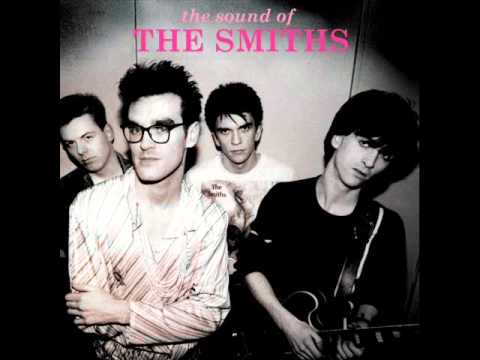It’s a funny thing to love a song for many years… this tune, “There is a light that never goes out,” by the English rock group The Smiths, has been dear to me for about 15 years. When I was a teenager, this was an emo anthem to live by – Goethe’s Werther would have approved – but now, in my early thirties, the glorious emotional power that once overwhelmed my younger self at the sound of titular chorus has changed in color. To my (slightly) older perspective, it’s no longer sweet, but rather tragic. How things change.
https://www.youtube.com/watch?v=n-cD4oLk_D0
To teenager Sam, this was one of the first songs that brought home the extent to which other folks, in this case queer folks, might feel alienated and unwelcome in the spaces that had always been so welcoming to white, straight, cis people like me. Though the song is rich in ambiguity, the story that always emerged in my mind was this: a queer teenager, after coming out to his parents, is kicked out into the street (“it’s not my home / it’s their home / I’m not welcome no more”). A friend comes to pick him up, a friend who our hero is secretly in love with, and the majesty of being rescued by the object of his affection washes over the narrator (“in the darkened underpass / I though, Oh G-d / my chance has come at last / but a strange fear gripped me / and I just couldn’t ask”). Suddenly deprived of home, and unable to confess his love, our hero is overcome by the impossible bittersweetness of the moment. Looking at the face of the young man he loves, a face he may well never touch or kiss, he sees a rich, fraught, potentially beautiful future for himself, and raises the simple chorus: “There is a light that never goes out.” The emotional complexity of the situation was compelling, irresistible, and in those days of Kurt Cobain and Elliott Smith, difficult feelings ruled supreme.
Even more than that emotional tidal wave, though, I was moved for the hero of “There is a light.” I began to dream of a world where gay kids didn’t have to face homelessness, violence, and persecution from within their own families and communities – this was back in the time of the ubiquity of the musical Rent, the years of the AIDS crisis, which now seems a cultural eternity ago. Though then, as now, queer and trans youth were being beaten and killed in their communities, it was a world where the idea of national legalization of gay marriage was not imaginable. I dreamed a different kind of future, one where, playing this song for my grandchildren, it would be necessary to explain that, generations before, queer kids faced danger because of who they were. It was sweet to imagine having to explain it, because, in that imaginary future world, it wouldn’t make any more sense to young people than the radical nature of President Kennedy appearing at his inauguration hatless makes sense to young people now. Our bigoted present would become a foreign, unthinkable past.
How the times change. My teen years are (mercifully) gone, and gone with them are both that emotionally overwrought perspective and the Zeitgeist of the 90’s. The dark, deep emotional waters that so enthralled me in my youth now smack of self-indulgence and egocentrism, something we were very wrong to worship – in hindsight, the fact that both Cobain and Smith, our heroes in those days, died violently by their own hands, seems especially poignant. Lines like “If a ten-ton truck / kills the both of us / to die by your side / well, the pleasure, the privilege is mine” no longer seem romantic in the least. This is tragedy. This kid doesn’t need to sing a song about his feelings, he needs the It Gets Better Project.
Similarly, our national conversation about LGBT youth has changed since the Bush and (Bill) Clinton years. While homelessness, violence, bullying, and persecution remain major issues, the conversation now includes community support, self-harm, and mental health services for queer/trans youth. Organizations like The Trevor Project, It Gets Better, and The Matthew Shepard Foundation have sprung up to support young queer and trans people, and older organizations like PFLAG have gained national prominence. The ugliness of the North Carolina bathroom law “debate” notwithstanding, the conversation is very different now than it was when this song came out in 1992. The culture is older, and I’m older, so that now, when I hear a young narrator talking about how lovely it would be to die, it doesn’t sound glamorous… it sounds like a cry for help. My wife heard me singing this song the other day, and found it disturbing. She ain’t wrong.
You, reader and listener, what do you think? What songs do you hear in different ways, what books, paintings, films, and any other part of life has meant different things to you in different parts of life? I wish that, writing this, I have another 30 years of life and listening behind me, to let you know how my relationship with this song changes next. Stay tuned for updates in 2031 and 2046, if blogs still exist and civilization hasn’t collapsed by then.



0 Comments